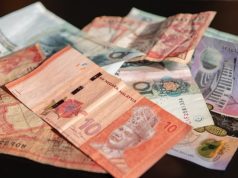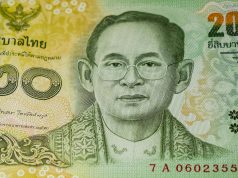- Indonesian rupiah touches four-month low
- South Korean shares set to log nearly 3% weekly gain
- Manila stocks hit their lowest levels in one month
Asian emerging market currencies dropped on Friday as the U.S. dollar and treasury yields strengthened ahead of the Federal Reserve meeting next week, while regional equities were mixed, with Indonesian stocks losing ground.
The MSCI emerging markets currency index <.MIEM00000CUS> was largely flat.
The Indonesian rupiah <IDR=> weakened 0.5% to hit a four-month low, prompting the central bank to intervene in the foreign exchange market to maintain confidence in the rupiah.
The Philippine peso <PHP=>, Thai baht <THB=TH> and South Korean won <KRW=KFTC> dipped 0.2% each.
The U.S. dollar <=USD> climbed to 107.05 for the first time since Nov. 26, and hit its highest point in more than two weeks.
Some softness in U.S. producer price inflation on Thursday supported market convictions of 25-basis-point cut from the Fed next week, despite a stronger headline figure.
Market estimates an around 96% chance of a quarter-point cut, marginally below the nearly 99% priced in before the data was released on Thursday.
The market will be watching out for the consensus between the Federal Open Market Committee (FOMC) members and if it will change to a little bit more dovish tone which might result in a slight reversal for the U.S. dollar, said Junvum Kim, a sales trader at Saxo Capital Markets.
“EMFX has recently gained sensitivity to fluctuations in the U.S. real yields. We believe this process can drag more vulnerable EM currencies to weaker levels, depending on markets’ perception of U.S. growth (and Fed reaction function),” Citi analysts wrote.
In Asia, equities in Shanghai <.SSEC> fell as much as 1.6%, a day after China pledged an increase in budget deficit and a more flexible monetary policy to support the economy, while the yuan <CNY=CFXS> was largely flat.
South Korean shares <.KS11> were set for a weekly gain of nearly 3%, overshadowing an around 1% loss last week following the surprise martial law declaration by President Yoon Suk Yeol.
The Korean won <KRW=KFTC> was on track to record a second consecutive weekly loss.
Shares in Manila <.PSI> extended their declines for the third straight session, slipping as much as 0.9% to a one-month low.
An unexpected easing of retail inflation in November on Thursday increased investor hopes for a rate cut by the Reserve Bank of India, but the benchmark <.NSEI> was down 0.6% on Friday, while the rupee <INR=IN> was trading flat.
HIGHLIGHTS:
** Thai consumer confidence rises in November on stimulus measures
** China says Philippines has ‘provoked trouble’ in South China Sea with U.S. backing
** BOJ to skip rate hike in December, majority of economists say – Reuters Poll
| Asian stocks and currencies at 0429 GMT | ||||||
| COUNTRY | FX RIC | FX DAILY % | FX YTD % | INDEX | STOCKS DAILY % | STOCKS YTD % |
| Japan | <JPY=> | -0.28 | -7.83 | <.N225> | -1.14 | 17.72 |
| China | <CNY=CFXS> | -0.10 | -2.47 | <.SSEC> | -1.49 | 14.62 |
| India | <INR=IN> | +0.01 | -1.93 | <.NSEI> | -0.61 | 12.28 |
| Indonesia | <IDR=> | -0.47 | -3.75 | <.JKSE> | -0.37 | 1.29 |
| Malaysia | <MYR=> | -0.34 | +3.15 | <.KLSE> | 0.40 | 10.58 |
| Philippines | <PHP=> | -0.20 | -5.16 | <.PSI> | -0.50 | 2.45 |
| S.Korea | <KRW=KFTC> | -0.23 | -10.17 | <.KS11> | 0.73 | -5.84 |
| Singapore | <SGD=> | -0.04 | -2.10 | <.STI> | 0.20 | 17.79 |
| Taiwan | <TWD=TP> | -0.03 | -5.43 | <.TWII> | 0.14 | 28.71 |
| Thailand | <THB=TH> | -0.22 | +0.47 | <.SETI> | -0.14 | 1.56 |








